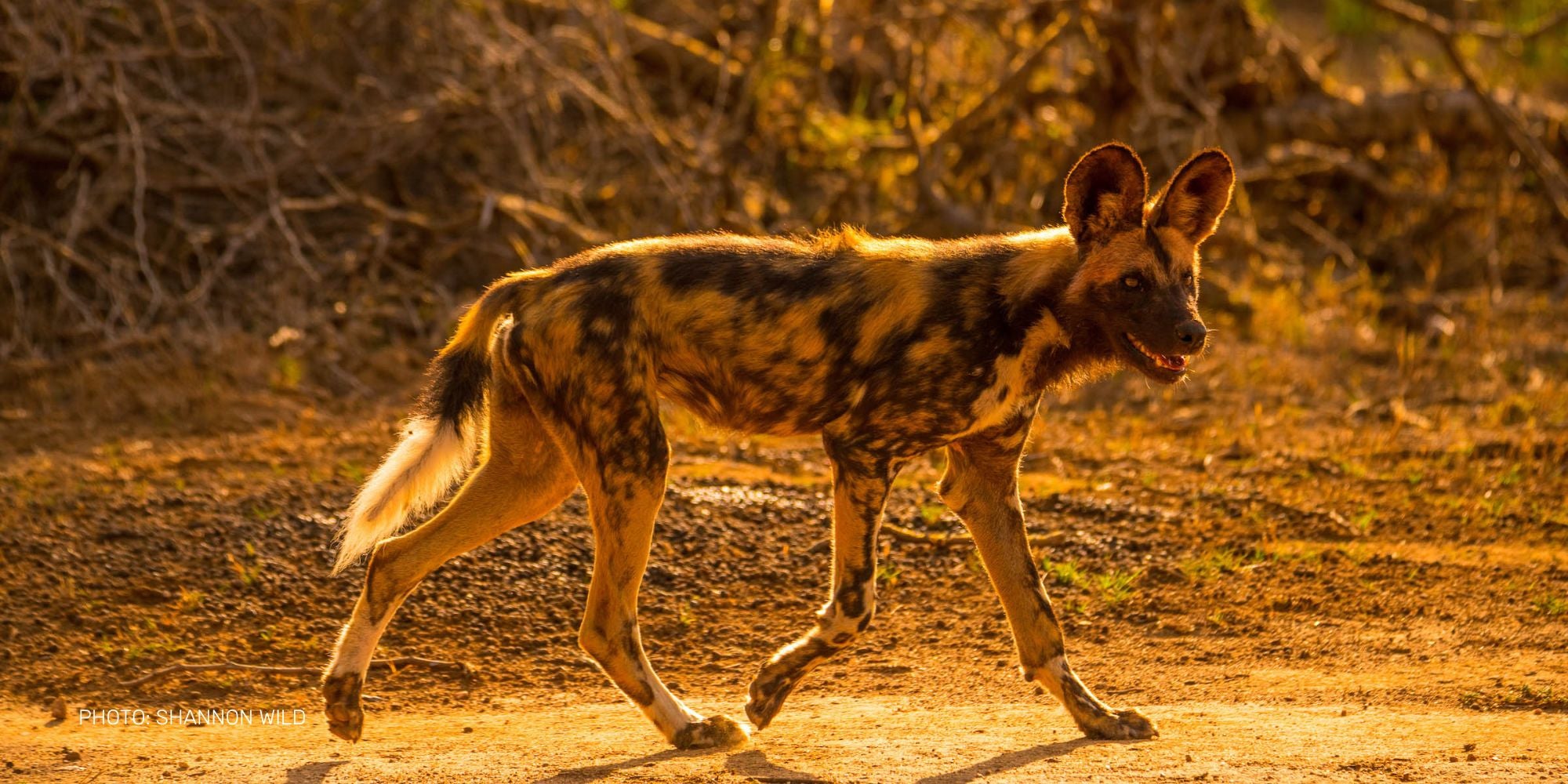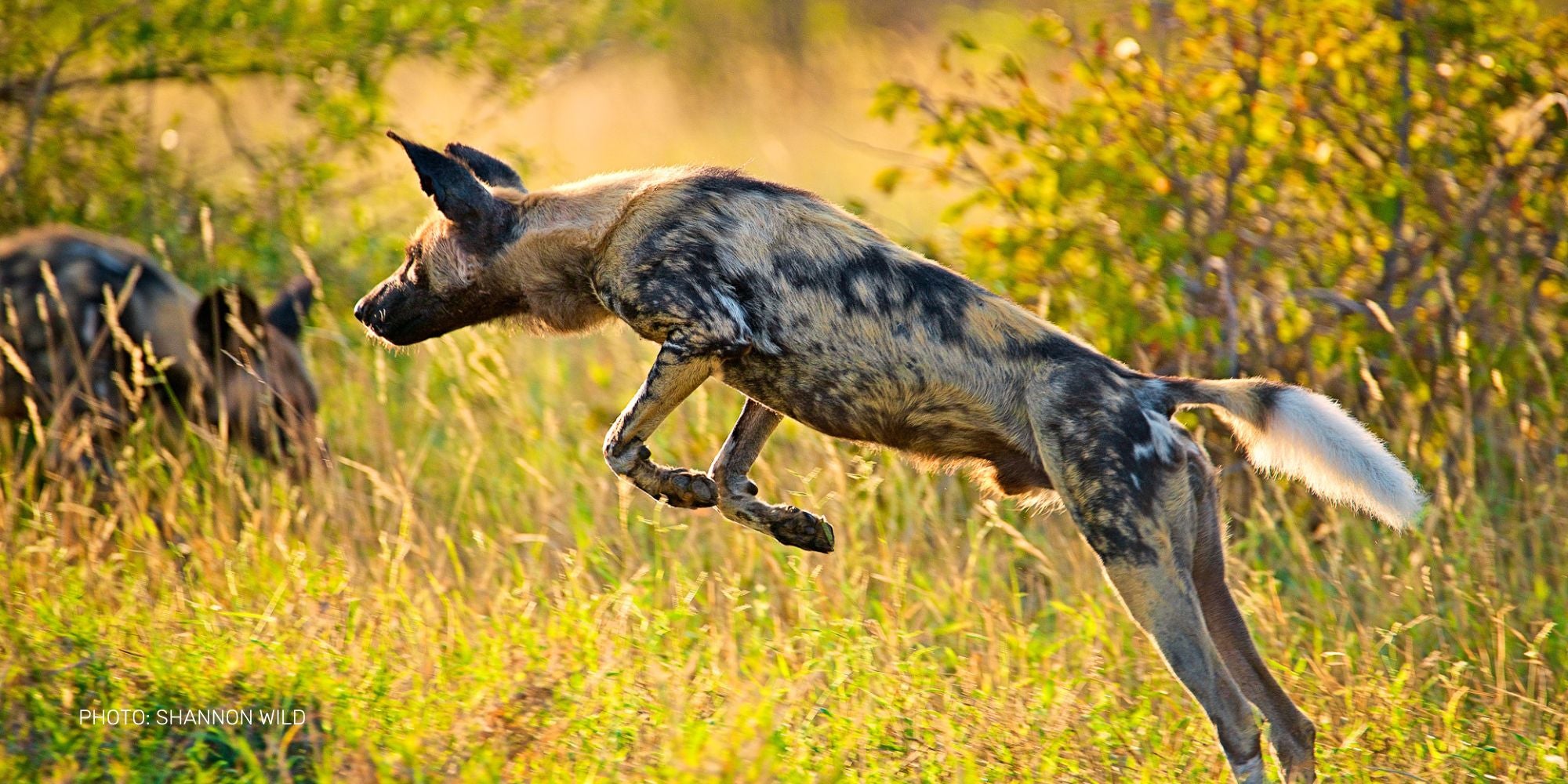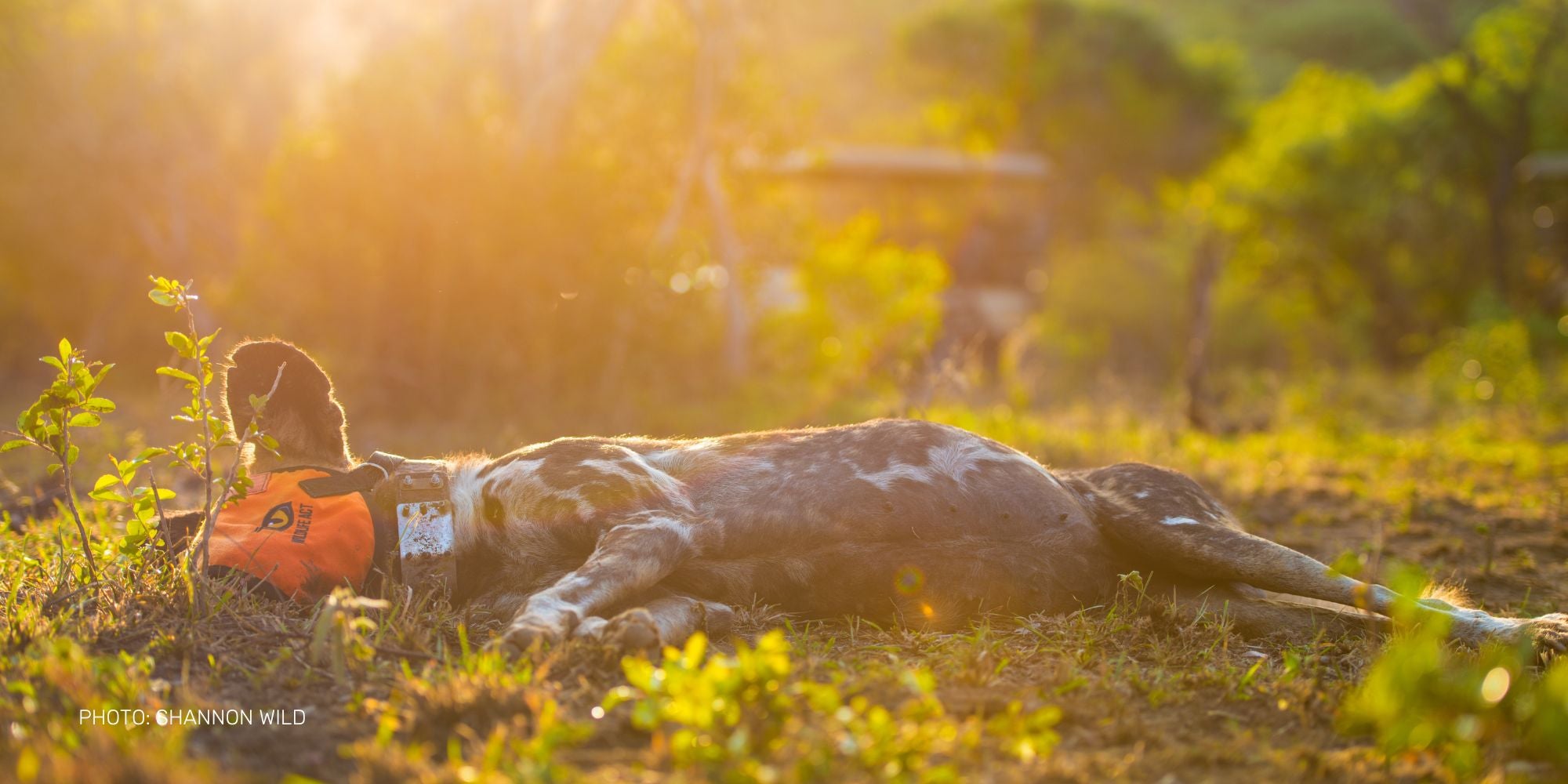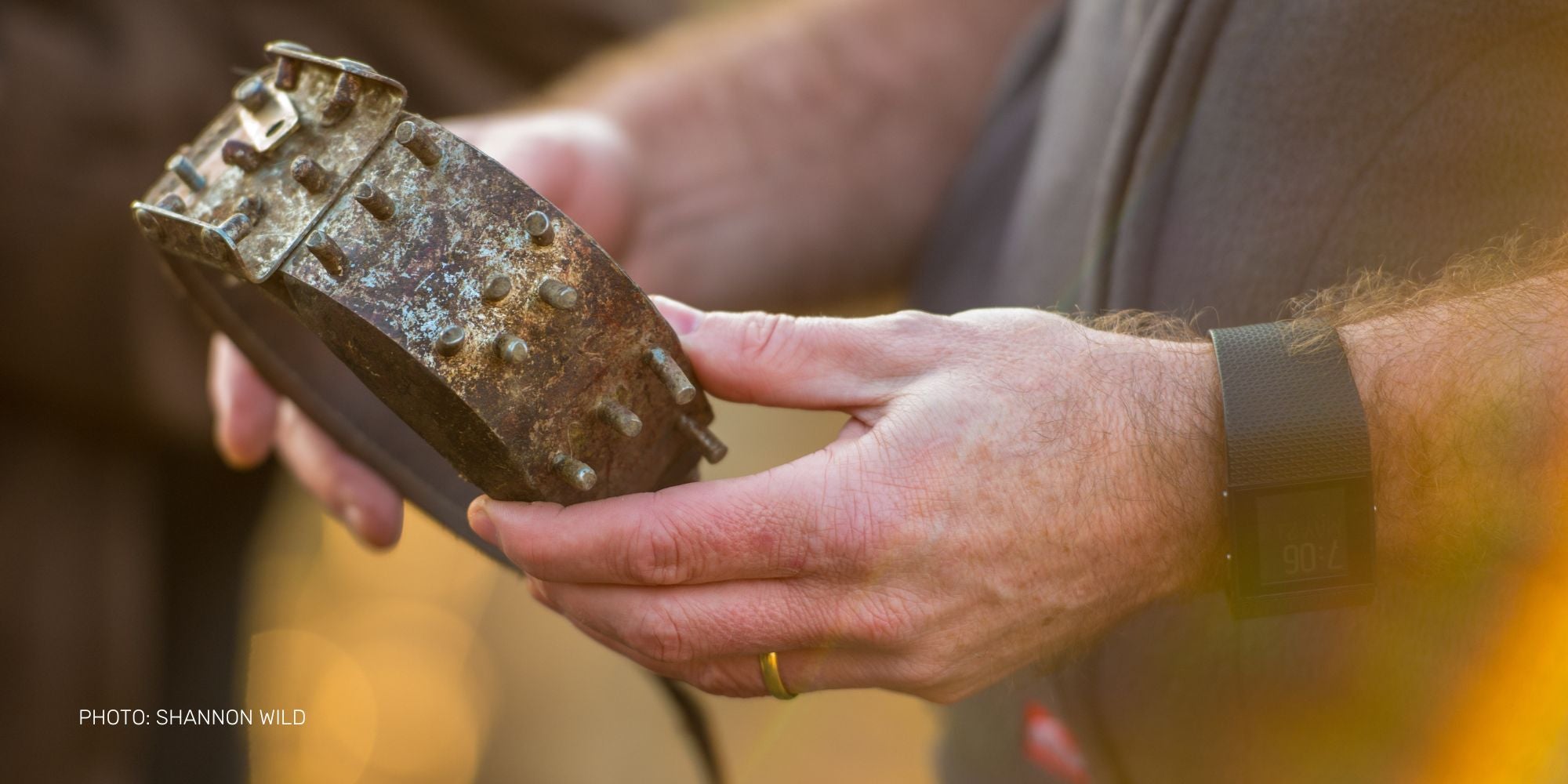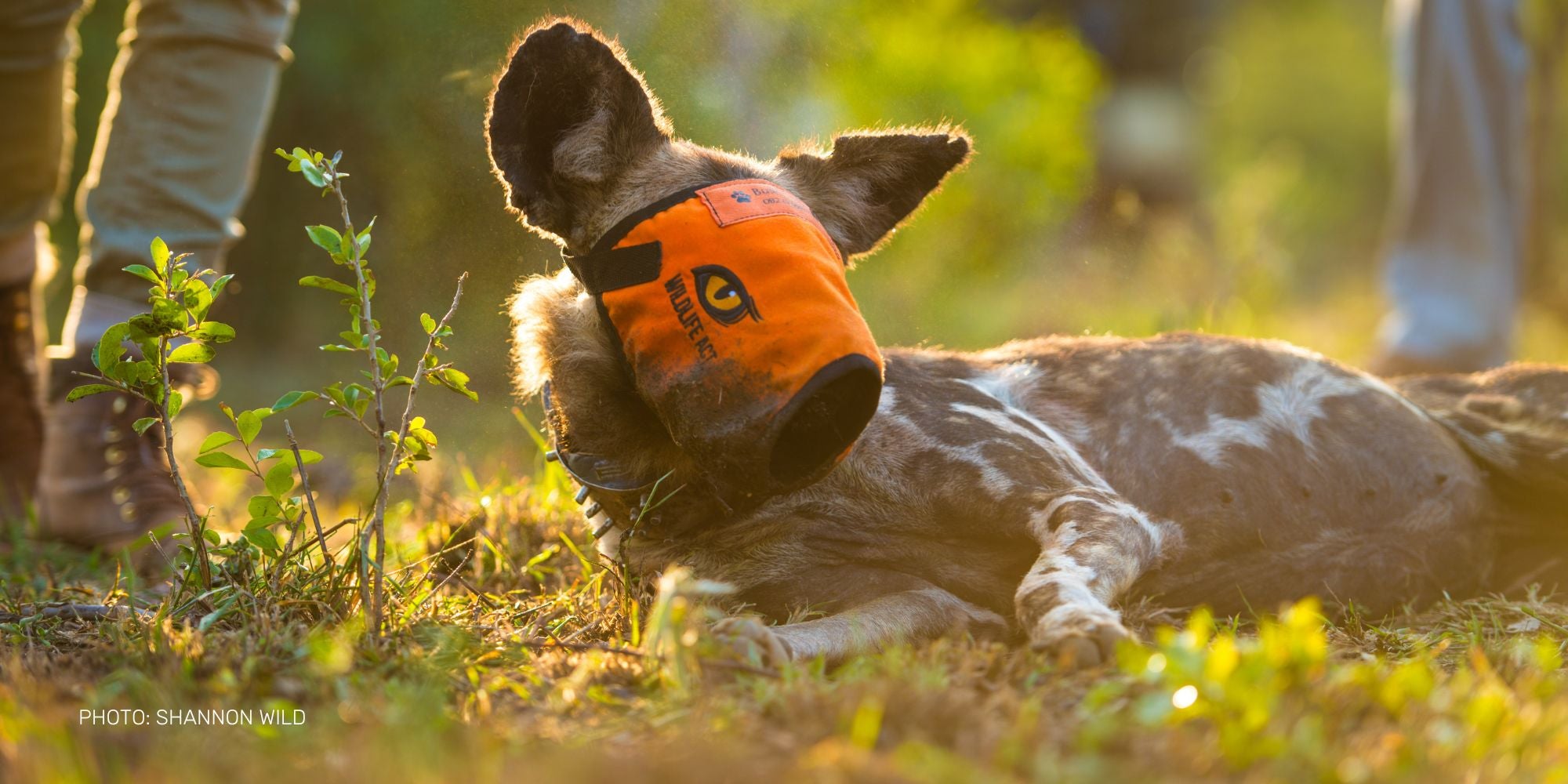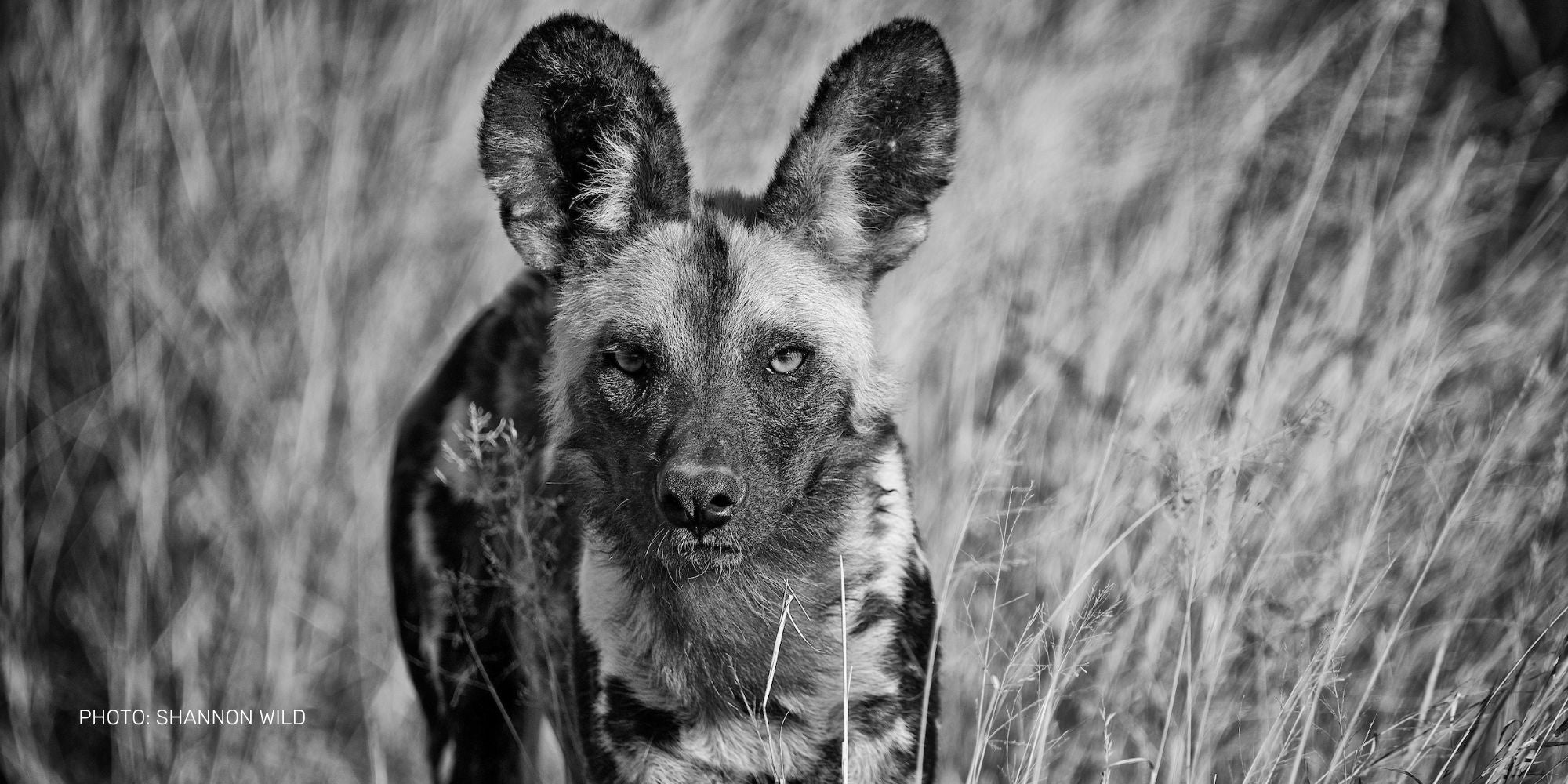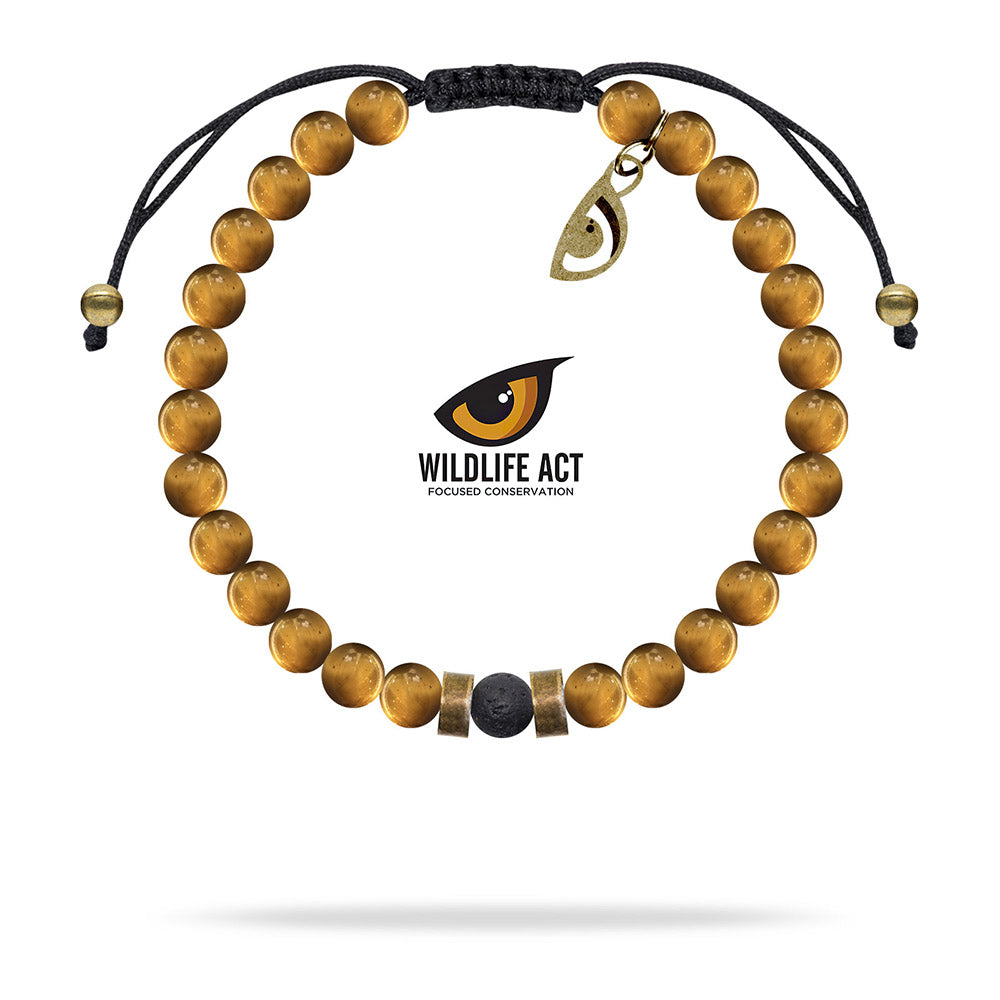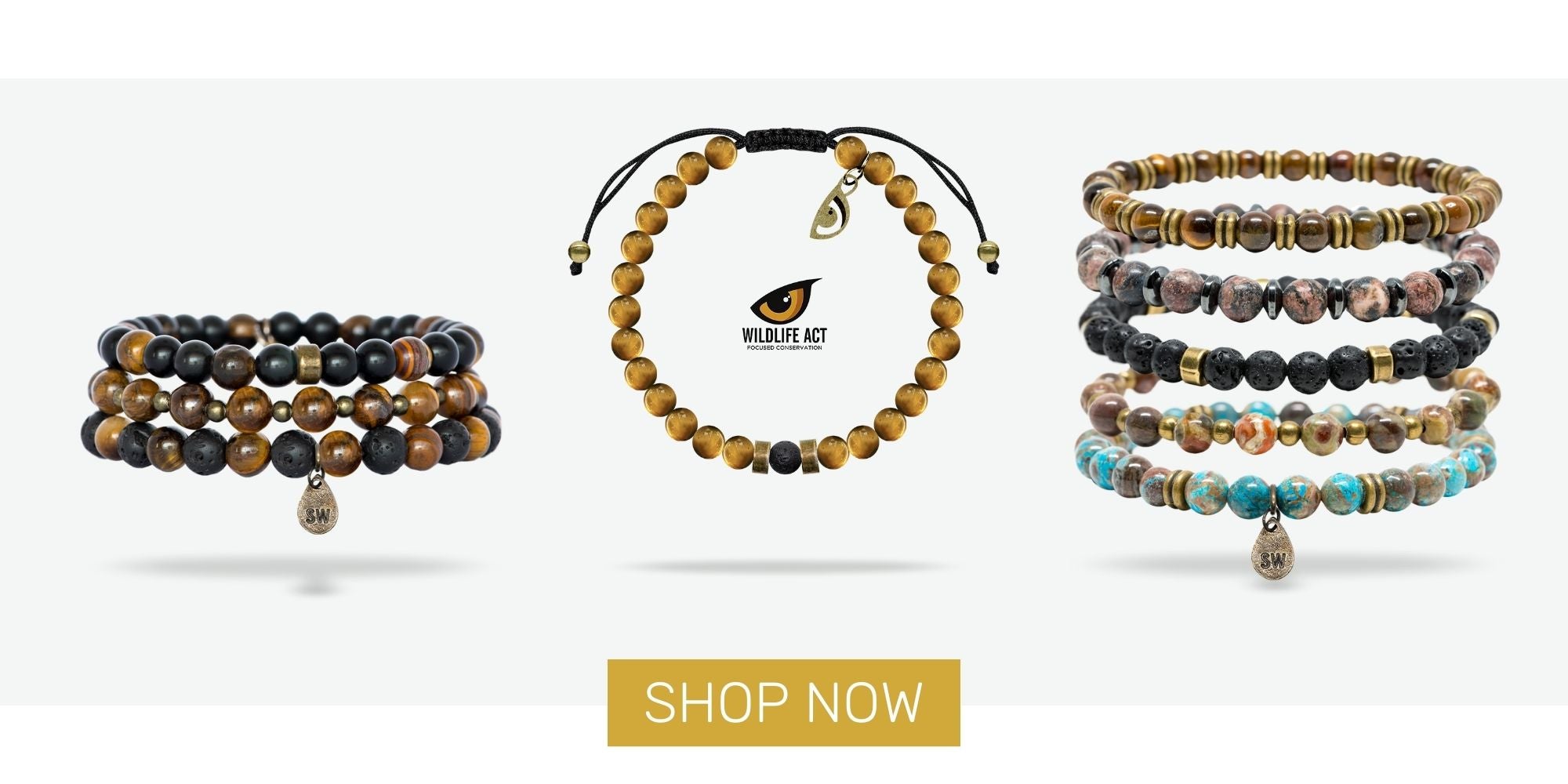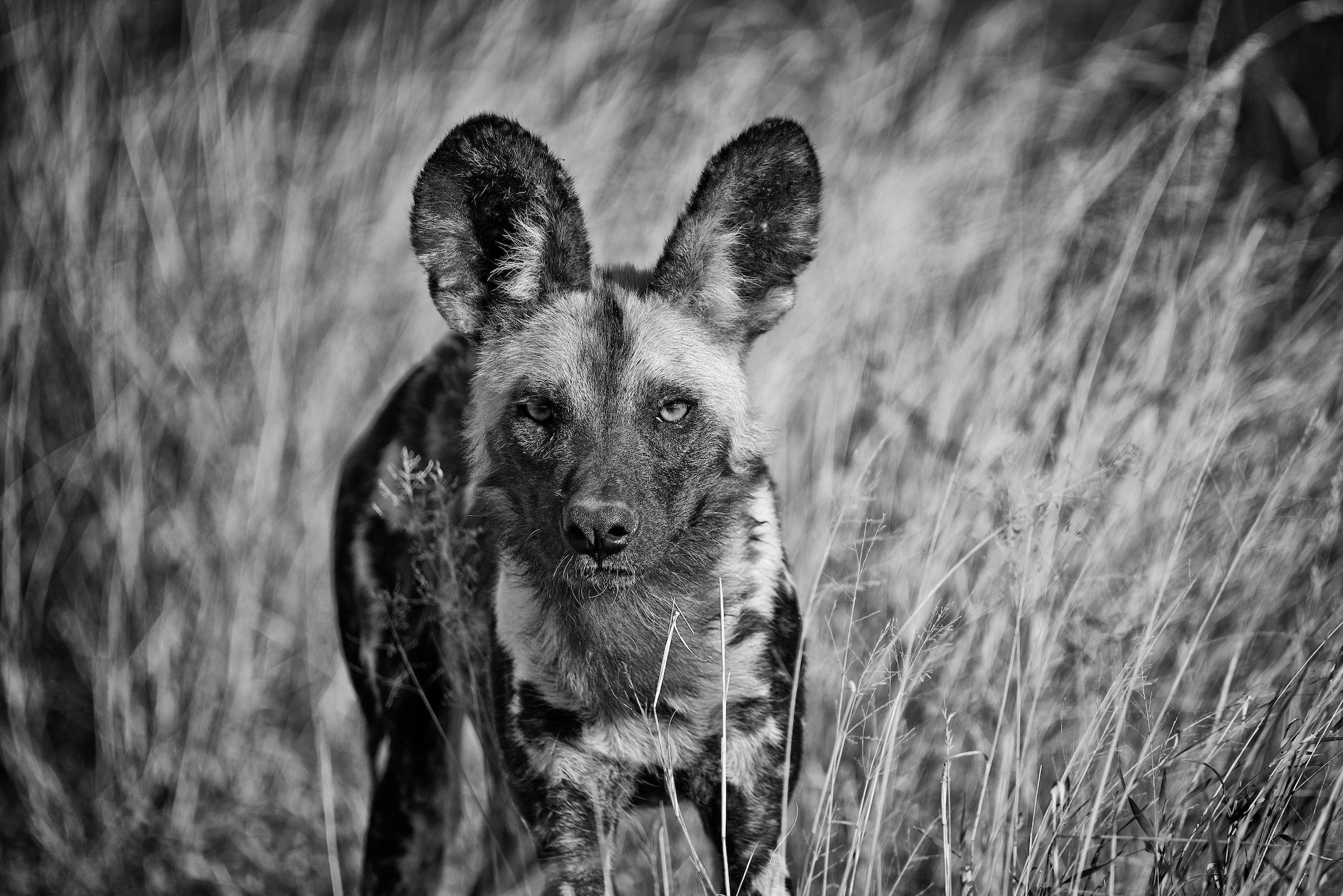
Exploring African Wild Dog Facts: A Conservation Focus
Posted on
Have you ever encountered the African wild dog? It's not your average neighborhood pooch. These extraordinary animals, with their spotted fur and ears resembling those of Mickey Mouse, are truly unique.
Their world is packed with complex social hierarchies, unique vocalizations that tell tales we're only just beginning to understand, and coordinated hunting strategies that put even the most accomplished human teams to shame. That's why diving into African wild dog facts feels like embarking on an adventure in a hidden corner of nature.
But there's more to the story. The survival story of these fascinating canines is filled with twists and turns as conservation efforts battle against increasing threats to their existence.
Can't wait to dive into a wildlife adventure? Buckle up! We've got fascinating facts about this amazing species ready for you!
Table of Contents:
- What is an African Wild Dog?
- Social Hierarchy of African Wild Dogs
- Unique Vocalizations of African Wild Dogs
- Hunting Strategies of African Wild Dogs
- Conservation Efforts for African Wild Dogs
- Interesting Facts About African Wild Dogs
- How You Can Help Protect African Wild Dogs
- FAQs in Relation to African Wild Dog Facts
- Conclusion
What is an African Wild Dog?
The African wild dog, commonly referred to as the painted wolf, is a unique species of canine endemic to Sub-Saharan Africa distinguished by its brightly colored coat and large rounded ears.
Akin to their domestic counterparts, they share some characteristics but with a few surprising twists. For instance, while your household pup might sport one or two colors on its coat, African wild dogs boast mottled patches of reds, blacks, browns, whites, and yellows that make them easily identifiable in the wild.
However fascinating they may be due to their looks alone though - there's much more than meets the eye when it comes down to these magnificent animals. Let's dive deeper into understanding what makes them truly special.
Physical Characteristics
An adult African wild dog typically weighs between 40-70 pounds (18-32 kilograms), which isn't far off from many breeds we're familiar with at home. Unlike domestic dogs, which have five toes on each paw, African wild dogs only possess four.
This adaptation helps streamline running and makes them incredibly fast runners reaching speeds up to 44 mph (71 km/h).
Ecosystem Role
A key player in maintaining ecological balance within savannah ecosystems across Africa - the role played by this carnivorous pack animal cannot be understated. They consume various creatures, such as impala and other hoofed animals, which helps to limit their numbers.
However, due to habitat loss and diseases like rabies or distemper caught from domestic dogs - these creatures are now endangered with less than 7,000 individuals remaining.
Their decline not only signifies the loss of a charismatic species but also disrupts ecosystems they inhabit causing unforeseen consequences.
African Wild Dogs, also known as painted wolves, hail from Sub-Saharan Africa. Their vibrant coats and oversized ears make them truly striking. But they're not just about looks - their hunting behaviors are key to keeping savannah ecosystems balanced. However, habitat loss and diseases caught from domestic dogs have left fewer than 7,000 of these unique creatures in the wild.
Social Hierarchy of African Wild Dogs
African wild dogs, also known as painted wolves or Cape hunting dogs, live in complex social packs. The pack is led by an alpha pair – the dominant male and female.
Interestingly, unlike other canine species where males dominate, within African wild dog society it's often the females who hold more sway. These powerful matriarchs can even push for a change in leadership if they're unhappy with their current leaders.
The hierarchy extends beyond just the alphas though. Each member has a rank and role to play within the pack. This level of organization aids survival and fosters unity among members.
Pack Structure & Roles
All roles are vital for maintaining balance in these tight-knit communities. From babysitters who look after young pups while adults hunt, to subordinates that assist the alphas - every job matters.
Younger siblings learn from older ones through play fights; this helps establish future rankings too. It’s like high school but without all the drama… well maybe not entirely.
Hunting: A Group Effort
Hunting is indeed teamwork at its finest among African wild dogs, illustrating how hierarchy functions practically day-to-day. Even during hunts, each member plays a part, making them one of nature's most successful predators despite their size being smaller than many big cats they share habitats with.
Breeding: It's a Family Affair
Typically, only the alpha pair breeds. The rest of the pack pitches in to help raise and feed their pups. This is why African wild dog packs are often larger than those of other canids – it’s all hands (or paws) on deck.
A Harmonious Existence
African wild dogs are fascinating not just for their striking appearances but also for their cooperative societal structures that emphasize group harmony over individual gain.
This social hierarchy helps maintain peace within the pack and enables efficient hunting strategies - ensuring survival against all odds.
Within the fascinating world of African wild dogs, every pack member plays a crucial role. From alphas leading to pups learning ranks through play fights - their societal structures promote unity and survival. Remarkably, females often hold more power than males in these packs. Their coordinated hunting strategies make them successful predators despite being smaller than many other big cats they share habitats with.
Unique Vocalizations of African Wild Dogs
These sounds are more than just noise; they play a critical role in communication within the pack.
The Whoop: Rallying the Troops
The whoop is one of the most recognized calls made by African wild dogs. It's used to rally members together before embarking on hunts or when reuniting after being separated. BBC Earth reports that this high-pitched sound can carry over long distances and be heard up to 5km away.
Squeaks and Whines: Pup Communication
Pups use a series of squeaks and whines to communicate with adults in their pack, signaling hunger or distress. The frequency at which these sounds are emitted lets other pack members know how urgent help is needed.
Tweets and Growls: Subtle Messages
When it comes down to intricate social dynamics within packs, tweets express submission while growls assert dominance. These short but impactful sounds give us an insight into the hierarchical structure amongst these fascinating creatures.
Wild In Africa, our online store selling quality bracelets crafted from semi-precious stones, donates a portion of proceeds to wildlife conservation projects, including those aimed at preserving the African wild dog.
By choosing Wild In Africa's jewellery, you're not just accessorizing. You’re contributing to safeguarding these creatures and their unique vocalizations for future generations. So why wait? Make a difference today with #WearYourKarma.
Hunting Strategies of African Wild Dogs
African wild dogs, also known as painted wolves, have a unique approach to hunting that sets them apart from other predators.
The Power of the Pack
These creatures are social animals and rely heavily on their pack when it comes to securing meals. A single dog can't bring down large prey alone, but together they become formidable hunters.
Typically, the hunt is led by an alpha male or female. The rest follow suit in an organized fashion that showcases excellent teamwork.
Cunning Canines with Endurance
Rather than relying solely on stealth or speed like many carnivores, African wild dogs use endurance to outlast their prey. They chase targets over long distances until exhaustion takes hold—this method is often referred to as 'exhaustive predation'.
This strategy gives them a remarkable success rate of around 80%, much higher than lions which only succeed about 30% of times according to research published in the Journal of Animal Ecology.
Vocal Communication During Hunts
Pack communication plays a vital role during hunts too; these intelligent creatures use vocalizations such as high-pitched twittering sounds for coordination and maintaining contact with each other while pursuing their quarry across vast savannahs.
Eco-friendly Predators
Another interesting fact about their hunting strategies is that they are eco-friendly predators. African wild dogs kill swiftly and rarely waste any part of the animal, thus ensuring a minimal ecological footprint.
The Threat to Their Hunting Grounds
But here's the catch: habitat loss poses a major threat to these effective hunters. As human populations expand, wilderness areas shrink and fragment, making it more difficult for them to find enough prey.
By backing wildlife conservation initiatives like Wild In Africa, you're playing a part in safeguarding these remarkable creatures. Purchasing our handcrafted bracelets isn't just about rocking stylish jewelry; it's more than that.
African wild dogs, known as painted wolves, rely on their pack and exceptional endurance to hunt effectively. With an impressive success rate of 80%, they coordinate hunts using unique vocalizations. Despite being eco-friendly predators that minimize waste, they face threats from habitat loss due to expanding human populations.
Conservation Efforts for African Wild Dogs
The survival of the majestic African wild dog is hanging by a thread. But, organizations like Wildlife ACT are fighting tooth and nail to keep them from vanishing.
African wild dogs face many threats, including habitat loss and diseases like canine distemper. It's heartbreaking because these creatures play a crucial role in maintaining healthy ecosystems by controlling prey populations.
Safeguarding Habitats
One of the main strategies is protecting habitats is to give these canines room to roam. Establishing wildlife corridors connecting protected areas is vital, so our four-legged friends can travel safely between their homes without coming into contact with human activities that could harm them.
This effort also involves working with local communities. By promoting sustainable land use practices and providing locals with alternatives to actions that might degrade wild dog habitats such as deforestation or overgrazing livestock.
Fighting Diseases
Besides safeguarding habitats, it's critical we address disease threats too. The organization has partnered with vets worldwide who provide vaccination programs against deadly diseases like rabies and canine distemper that often spill over from domestic dogs living near conservation areas.
Educating Communities
We cannot underestimate the power of education when it comes to conservation efforts either. So yes - you guessed right - another significant part of conservation includes educating people about the value of wildlife preservation through community outreach initiatives. These programs encourage communities to live harmoniously with these animals, fostering an understanding of their importance in the ecosystem.
The goal is simple but powerful: reduce human-wildlife conflict and create a safer world for African wild dogs and humans alike.
Wild In Africa’s Contribution
And hey, we're pitching in at Wild In Africa too. Every buy you make lends a hand with our funding.
Wildlife ACT is on a mission to save the endangered African wild dogs. They're protecting habitats, fighting diseases and educating communities about these unique creatures' importance in maintaining balanced ecosystems. And every purchase you make with Wild In Africa helps contribute to their vital conservation efforts.
Interesting Facts About African Wild Dogs
Have you ever wondered about the hidden secrets of the African wild dogs? Let's explore some captivating facts that make these creatures unique.
Their Coat is a Unique Identity Card
No two African wild dogs have the same coat pattern. It's like their identity card, each one is unique and different. This helps them recognize each other in the pack.
A Super Endurance Runner
African wild dogs are not just hunters; they're marathon runners too. They can sprint at a rate of up to 44 mph and keep running for long distances. Talk about endurance.
Social Creatures with Tight-knit Families
You might be surprised to learn that these animals live in packs led by a monogamous pair, forming tight-knit families much like ours. Their cooperative behavior extends from hunting to babysitting duties.
Vocalization as Communication Tool
The vocalizations of an African wild dog are pretty interesting - ranging from high-pitched twittering during feeding times to bell-like contact calls when separated from their pack.
Hunting Strategies: A Blend of Speed and Strategy
These canine strategists use tactics rather than relying on stealth or strength while hunting. By working together as a team, they increase their chances of getting food even against faster prey.
Pack Size Influences Hunting Success
Did you know the size of their pack can influence their hunting success? A larger group means more eyes to spot prey and coordinate an effective chase. It's teamwork at its best.
A Symbol for Conservation Efforts
Despite being a symbol for conservation efforts, African wild dogs are endangered with only around 6,600 left in the wild.
How You Can Help Protect African Wild Dogs
African wild dogs are fascinating creatures, but they need our help to thrive. You can do a lot to contribute to the preservation of African wild dogs.
Support Wildlife Conservation Organizations
You don't need to be physically present in Africa to make a difference. Consider supporting organizations like Wildlife ACT who actively work towards protecting these incredible animals and their habitats.
Their goal? To ensure that future generations will still get the chance to marvel at the unique social hierarchy and vocalizations of African wild dogs.
Become an Advocate for These Species
Raising awareness about this species is just as important as donating money. Share facts about African wild dogs' complex hunting strategies or talk about why conservation efforts matter. Every conversation could potentially inspire someone else.
Purchase Products That Give Back
Your shopping choices can also play a part in conserving wildlife. Companies like Wild In Africa, sell beautiful handcrafted jewellery where proceeds go directly towards charities working with wildlife conservation projects.
"By buying one of our bracelets, not only do you #WearYourKarma but you become part of our tribe committed to giving back," says Shannon Wild, founder of Wild In Africa.
Educate Yourself And Others About The Plight Of The African Wild Dog
To take meaningful action we first need comprehensive understanding - did you know that the African wild dog is one of Africa's most endangered predators? Or, how about their unique 'sneeze' communication used in hunting?
FAQs in Relation to African Wild Dog Facts
What are 3 interesting facts about African wild dogs?
African wild dogs have unique coat patterns, making each one distinct. They're among the most efficient predators, with an 80% success rate in hunts. Their large ears help them hear prey miles away.
What is unique about the African wild dog?
Their distinctive fur patterns set them apart from other canines. Also, unlike most carnivores who have five toes on their front paws, they only have four.
Why are African wild dogs ears so big?
African wild dogs' huge ears let them pick up faint sounds of distant prey or pack members calling over vast savannahs.
Are African wild dogs friendly to humans?
Nope, these critters keep their distance from us and aren't domesticated like our pet pups at home - it's best for both species if we respect that boundary.
Conclusion
Well, folks, we've roamed through the rich world of African wild dog facts together. These fascinating creatures sure do pack a punch!
Their complex social hierarchies, unique vocalizations and effective hunting strategies show us they're more than just dogs.
Remember how important their survival is for maintaining our planet's biodiversity? Conservation efforts are key here.
We also discovered some surprising nuggets about these wild canines that made us say 'wow'! What was your favorite?
You now have knowledge on ways to help protect this species. Let's all pitch in!
Last but not least: don't forget - every bit of information you share helps spread awareness. Let everyone know about the amazing African Wild Dog!
New products and discounts first!
RETAIL & STUDIO
The Farm House, R527
Hoedspruit LP South Africa
Whatsapp: +27 79 225 4988
contact@wildinafrica.store
. . . . . . . . .
HEAD OFFICE
65/2 Arbor Ave, Robina
QLD 4226 Australia

